What Diplomats Do
What Diplomats Do
The Life and Work of Diplomats
Sir Brian Barder
ROWMAN & LITTLEFIELD
Lanham Boulder New York London
Published by Rowman & Littlefield
A wholly owned subsidiary of The Rowman & Littlefield Publishing Group, Inc.
4501 Forbes Boulevard, Suite 200, Lanham, Maryland 20706
www.rowman.com
16 Carlisle Street, London W1D 3BT, United Kingdom
Copyright 2014 by Rowman & Littlefield Publishing Group, Inc.
All rights reserved. No part of this book may be reproduced in any form or by any electronic or mechanical means, including information storage and retrieval systems, without written permission from the publisher, except by a reviewer who may quote passages in a review.
British Library Cataloguing in Publication Information Available
Library of Congress Cataloging-in-Publication Data
Barder, Brian.
What diplomats do : the life and work of diplomats / Brian Barder.
p. cm.
Includes bibliographical references and index.
ISBN 978-1-4422-2635-7 (cloth : alk. paper) -- ISBN 978-1-4422-2636-4 (electronic)
1. Diplomats. 2. Diplomacy. I. Title.
JZ1405.B35 2014
327.2--dc23
2014018106
 TM The paper used in this publication meets the minimum requirements of American National Standard for Information Sciences Permanence of Paper for Printed Library Materials, ANSI/NISO Z39.48-1992.
TM The paper used in this publication meets the minimum requirements of American National Standard for Information Sciences Permanence of Paper for Printed Library Materials, ANSI/NISO Z39.48-1992.
Printed in the United States of America
For Lily and Florence
in case they ever wonder what kind of thing their
grandfather used to do
and
for Virginia, Louise, and Owen
who were such an important part of it
Foreword
By Ivor Roberts
Brian Barder knows of what he speaks. His book describing What Diplomats Do draws on his thirty years of experience in that funny old trade. He served in widely varying posts in four continents, ranging from New York and Canberra at one end of the comfort spectrum to Moscow, Warsaw, Addis Ababa, and Lagos at the other. For twelve years he represented Britain as an ambassador or high commissioner (the equivalent of an ambassador representing one Commonwealth country in another) to five countriesEthiopia, during the great international famine relief operation of the 1980s, Poland, in the dying days of the communist rgime, Nigeria and Bnin when the military government of the former seemed to be moving towards the restoration of democracy, and Australia during the years of debate over retaining the monarchy or moving to a republic. His varied experiences in these and other posts around the world, including the UK delegation to the United Nations, are reflected in the material skilfully used in this book to illustrate various facets of diplomatic life.
Brian and I only overlapped once, when I was a brand new entrant and he a relatively junior diplomat though with an overseas posting already behind him. I admired his work often from afar, my own diplomatic experience being largely in Europe (Paris, Luxembourg, Madrid, Belgrade, Dublin, and Rome) and also in Lebanon, Australia, and Vanuatu. Between us we have served in about 10 percent of the worlds states and have well over twenty years of experience as heads of missions.
With that experience and as the editor of the new edition of the classic diplomatic textbook Satows Diplomatic Practice, I hope that I can be considered capable of distinguishing a diplomatic hawk from a handsaw. So while books on diplomacy and diplomatic life are not a rarity, Brians offering fills a real gap in the market. It is neither a manual, though it offers excellent practical advice, nor is it a memoir, though the text is interspersed with often entertaining and illuminating anecdotes. It does instead what it promises: it tells you exactly what its like to be a diplomat and what sort of challenges you face on an every-day basis. It cleverly follows an imaginary young couple, a diplomat and his spouse, up the ladder from earliest days in the Diplomatic Service to stepping down from an ambassadorial role. It strips away much of the flim-flam surrounding the image of diplomacy in the more ignorant elements of the popular press and brings out how unglamorous and indeed downright dangerous much of the work is. Likewise it pulls no punches in laying into the British Treasury as one of the bastions of small mindedness and short-term thinking in the British establishment. There is, however, no sense of didacticism here: the narrative is written to be clear to absolute ingnus in the field of diplomacy and thoroughly enjoyable at the same time. Although written through a clearly British prism, it translates well into diplomacy generally. Thus anyone aspiring to join this most rewarding of professions would be well advised to read What Diplomats Do first. It will perhaps deter some from seeking to join diplomacy if they are put off by the way the glamour is overshadowed by the grind, but there will be no loss.

Sir Ivor Roberts KCMG has been President of Trinity College, Oxford University, since 2006. Before he retired from the British Diplomatic Service, he was British ambassador successively to Yugoslavia, Ireland, and Italy. He was the Editor of the international diplomatic handbook, Satows Diplomatic Practice, 6th ed. (2009).
Acknowledgments
This book would never have been either written or published without the encouragement, sometimes in the form of productive nagging, of two academic experts in the field: Dr. Lorna Lloyd, Senior Research Fellow in International Relations at Keele University, who finally persuaded me that there was a book to be distilled from my years in the UK Diplomatic Service, and Emeritus Professor G. R. Berridge, formerly Professor of International Politics at Leicester University and author of (among many other classic works) the authoritative Diplomacy: Theory and Practice, who also spurred me on and who persuaded my publishers, Rowman & Littlefield, that the book would fill a gap and was worth publishing. Both of them also spent more time than the book deserves in writing detailed comments and suggestions on the text, nearly all of which I have gratefully accepted, much enhancing such value as the work might have.
Others who gallantly read the full text in draft and who provided equally insightful comments and encouragement included Professor Alan Henrikson, Lee E. Dirks Professor of Diplomatic History at The Fletcher School of Law and Diplomacy, Tufts University; my old diplomatic service colleague and friend Sir Ivor Roberts, a distinguished former ambassador and currently President of Trinity College, Oxford University, as well as Editor of the international diplomatic handbook, Satows Diplomatic Practice, 6th edition; and my daughter, Louise Barder, now a long-time New Yorker, who supplied not only several constructive stylistic suggestions but also a list of words and phrases in the text that risked being unintelligible, embarrassing, or objectionable to American readers. Another old friend and diplomatic service colleague, Sir Bryan Cartledge, former British ambassador in Budapest and later Moscow, former Principal (Master) of Linacre College, Oxford and author of what is now the classic history of Hungary, read the original proposal for the book and made generous comments on it which were immensely reassuring to me and persuasive to my publisher.
The whole manuscript was also read in draft by a current serving member of the British diplomatic service who provided enormously valuable advice on passages in the book about activities where procedures or terminologies have changed and where current practice needed to be acknowledged and described. The diplomat concerned was on temporary secondment to another countrys diplomatic service at the time and was thus able to comment on the basis of first-hand experience of not one but two leading western diplomatic services, doubling the value of the advice. I have also had useful and encouraging comments from two other serving members of HM Diplomatic Service who read the manuscript in draft. A fourth, with his wife, Laurie and Fiona Bristow, gave me (and my wife) an extremely useful briefing on the many changes in the procedures, practices, technologies, and language that have taken place in UK diplomatic life in recent years.
Next page

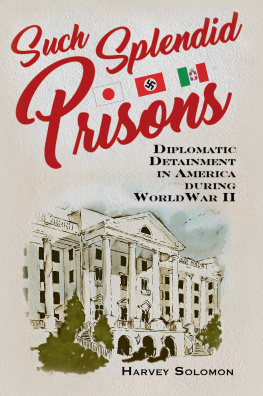
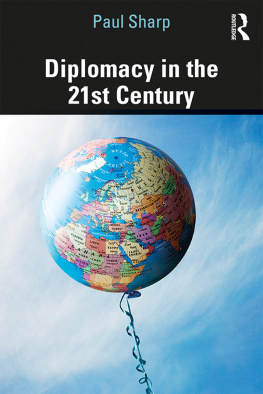
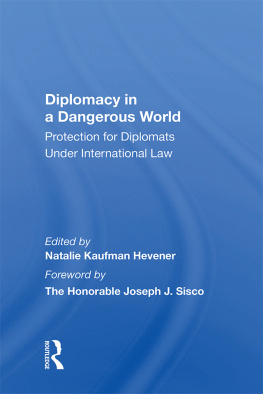
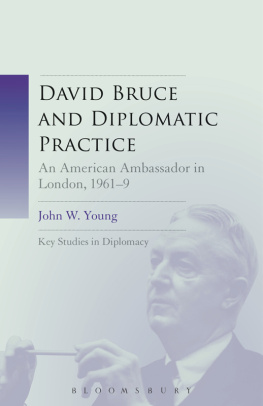

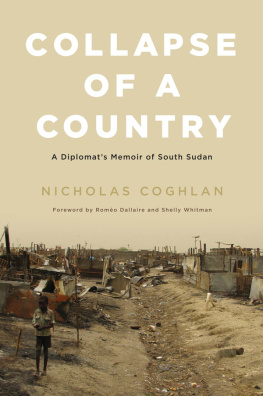
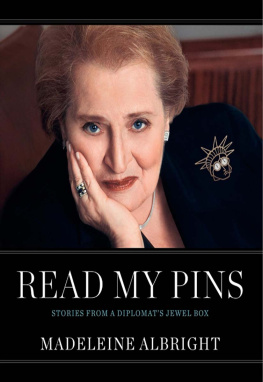
 TM The paper used in this publication meets the minimum requirements of American National Standard for Information Sciences Permanence of Paper for Printed Library Materials, ANSI/NISO Z39.48-1992.
TM The paper used in this publication meets the minimum requirements of American National Standard for Information Sciences Permanence of Paper for Printed Library Materials, ANSI/NISO Z39.48-1992.